





Student crafts his wedding rings

We are thrilled to bring you the second edition of FID Pulse and we want to extend our heartfelt thanks to all of you for your continued support as we document the remarkable achievements and milestones of our faculty. This publication is a celebration of the hard work, dedication and innovation within our department, and we are proud to share it with you.
In this edition, we have highlighted a diverse range of stories that showcase the exceptional talent and commitment across FID. From prestigious excellence awards to groundbreaking academic accomplishments, we shed light on research that tackles real-world challenges. We spotlight the impressive work of the Architectural Technology and Interior Design Department, whose industry partnerships are paving the way for future innovations.
We are also excited to introduce African Voice, a new feature that recognises the contributions of African students, offering them a platform to share their experiences and
As we close the curtain on another year, I want to take a moment to thank every member of the Faculty of Informatics and Design (FID) for your hard work and dedication. It has been a fruitful year, marked by incredible achievements and the meeting of most of our targets. Your commitment to excellence and the shared vision of our faculty have been the driving forces behind these successes.
As the holiday season approaches, I encourage you to take a well-deserved break. This is a time to rest, recharge, and reconnect with those who matter most. Our demanding schedules often mean we miss out on precious moments with our families. Let us use this time to rekindle those bonds, share laughter, and create memories that will carry us into the new year with renewed energy.
While we celebrate the milestones of 2024, I urge you to also reflect on your personal growth and aspirations. Let’s return in 2025 ready to take FID to even greater heights, embracing new opportunities and challenges with the same passion that has defined this year.
May your holiday season be filled with joy, peace and togetherness. Thank you for your incredible efforts, and I
perspectives. This is just one way we aim to celebrate diversity and ensure that all voices are heard within our faculty.
We are launching another feature, Where Are They? which profiles FID alumni, tracking their professional journeys and reconnecting them with current students. This initiative not only celebrates their achievements but also helps to strengthen the bonds within our academic community.
We hope you enjoy reading this edition as much as we enjoyed putting it together. Thank you once again for your unwavering support.
Jim Mohlala News editor

look forward to continuing this journey with all of you in the new year. May you have a restful, rejuvenating break and may 2025 bring success, fulfilment and growth in all areas of your lives.
Warm regards,
Professor Tembisa Ngqondi FID Dean

By Jim Mohlala
When students in the Architectural Technology and Interior Design Department could not secure work-integrated learning (WIL) placements, the department did not fold its arms. It developed solutions to tackle the challenge. The architectural technology diploma includes a WIL component in its architectural practice module, where students complete at least 18 weeks of internship to gain practical experience.
The department’s WIL coordinator, Ayanda Buwa, and the head of the department (HOD), Rayner Moodley, improved the simulated office model (SIM?) by incorporating industry engagement and building partnerships. Buwa said some students struggled to secure placements partly due to the country’s economic climate.
“This transformation enabled students to experience comprehensive industry interactions, gain access to professional mentorship, and engage in projects that simulate real-world challenges and opportunities in architecture and interior design,” said Buwa.
“We initiated partnerships with eight architecture and interior design firms, ensuring that students who had internships and those in the simulated office environment could benefit equally. The firms were approached to contribute not only their expertise but also resources such as speciality materials and tools that our department would otherwise lack.”
Buwa’s role involved establishing collaborations, coordinating projects, setting expectations, and guiding industry professionals and students during the second semester of the

three-year diploma.
“This hands-on involvement has allowed students to gain a well-rounded and immersive industry experience that previously was unattainable within the constraints of the then simulated office model,” he said.
Buwa said he collaborated with fellow thirdyear architectural technology lecturer Gingirikani Maswanganye and adopted a hands-on approach, guiding the breakdown of project briefs for the Caesarstone Competition and the Catalytic Projects, working with the Marketing and Communications Department.
“We provided design and technical support throughout the competition, ensuring students understood the requirements,” said Buwa. Moodley provided guidance throughout the semester, helping students manage their workflow while balancing other commitment, he said.
“Our core mission has been to develop students’ skills and confidence through collaboration. We foster a resourceful environment where students are encouraged to partner with lecturers and peers across disciplines within Cape Peninsula University of Technology’s Architecture and Interior Design Department,” said.
“This collaborative network is central to the office of the HOD and his efforts to empower students, preparing them to navigate complex design challenges with resilience and creativity.”
Buwa said the initiative’s success was driven by collaboration with the department’s industry
partner, the Cape Institute for Architecture (CIFA), where he represents the department.
“By leveraging CIFA’s industry database, we managed to secure internship placements for some students and established new partnerships with firms willing to contribute to our simulated office environment and our department at large, CIFAs support is always appreciated” he said.
“Working closely with academic colleagues, we ensured that the programme was effectively integrated into the curriculum, aligning with academic goals while meeting industry standards. Weekly guest lectures by professionals, crit sessions in various architectural offices, and visits to some construction sites further enriched this model, drawing on the expertise and commitment of our industry partners.”
Final-year students sang the department’s praises. Miles Luyanda Magubane said the programme allowed him to work on a Cape Peninsula University of Technology’s (CPUT) Vision 2030 project. The project focused on two ideas — oneness and smartness — to promote unity within the CPUT community.
The project focused on redesigning the District Six and Bellville campuses’ entrances.
“A couple of things happened last year which changed the shape of the Bellville campus, like the students’ strike and everything. They put bars there for security reasons during that time. What they now wanted us to do was try to make it a bit more open and friendly as well as more welcoming to students,” Magubane said.
“District Six was a bit trickier because it used to have a different type of entryway. So, our idea is to create a bigger entrance so that new students won’t get lost or anything like that. They’ll be able to find their way easier.”
Trevan-Jaden Nades, who worked for a professional architecture firm, echoed Magubane’s sentiments.
“I feel like the whole SIM Office programme was very informative and very important to us, it was an important programme for us to also get work experience,” he said.
“And that experience with ArchiLab was very insightful because it showed us how the industry works. We did on-site visits. We produced drawings for the company and that was all done for us to learn about the council submission processes, working drawings, and technical detailing of building components.”






By Philani Nombembe
An IT PhD candidate, concerned about the rampant dumping of e-waste in rural areas and the limited awareness of its hazards, has developed a mobile application (app) to address the issue.
Odwa Gazana, who is set to graduate next month, developed the app as part of his study, focusing on two Eastern Cape villages. The app, which Gazana has named the Lord of All Electronic Devices, allows registered users to submit e-waste items they need to be collected from their households.
It also sends out SMSs, twice a month, to notify end users of the dangers posed by e-waste, among a myriad of other things. Gazana shared his research journey with FID Pulse.
“Growing up in rural areas, I saw worsening pollution, particularly with e-waste. Experiences like encountering discarded refrigerators in rivers while fetching water inspired me to address this issue and protect rural environments,” said Gazana.
“Driven by a desire to raise awareness about the dangers of e-waste, I aimed to educate rural communities on its impact on health, the environment, and livestock, emphasising that charity begins at home.”
He said he developed the app in collaboration with two rural villages, whose chiefs supported the initiative after realising its value.
“This community-driven approach laid the foundation for the project,” said

Gazana.
“I adopted a co-design approach, involving villagers in the development process. As a software developer, I used workshops to educate them about e-waste, its dangers, and its impact on their environment and health, including how it affects their crops and livestock.”
Gazana said the communities asked that e-waste education be taught at schools.
“The villagers proposed incorporating e-waste education in local schools and insisted on an English version of the app to showcase their communities and create job opportunities for youth. Through co-design, we worked together to define the app’s goals,” he said.
“We aim to involve local businesses and the municipality. By offering rewards like points for petrol or groceries, it encourages e-waste recycling and benefits businesses. There’s potential for the app to go national, but success relies on partnerships
with the private sector.”
He said the app would create jobs if implemented.
“The app aims to tackle the lack of municipal infrastructure for e-waste collection and recycling. It encourages local communities to build the necessary infrastructure, creating jobs, while also involving the private sector. The app will help manage and properly dispose of all electronic devices, including those used to access it.”
Gazana said his PhD supervisor, Professor Tembisa Ngqondi, was assisting him in implementing the app.
“My supervisor has arranged a meeting to showcase the app’s features, with potential for further development and commercialisation. I’m optimistic about the communities that co-designed it, as their involvement fosters a sense of ownership, ensuring high adoption. I also hope the government will support the initiative,” he said.
By Philani Nombembe
The Faculty of Informatics and Design (FID) has achieved impressive student enrolment figures, reaching nearly 99% of its planned target this academic year.
This includes close to 90% of first-time cluster enrolments and approximately 65% of postgraduate enrolments. Faculty Officer Nkosiphendule Kashe said these successes highlight the dedication and hard work of FID’s staff.
“For 2024, the faculty has received a total of 61 922 applications, 23 491 applications were first choice. These numbers enabled the faculty to meet the first-time entering (FTE) target, achieved 89,4% of the first-time cluster – this includes FTE, entering and transfer students,” said Kashe.
“In postgraduate enrolments, the faculty managed to meet 64,5% of the enrolment target. The faculty office thinks that the number may be increased, and it is currently looking at ways to support the postgrad studies office to improve the number. The faculty has met 99% of total enrolments with the
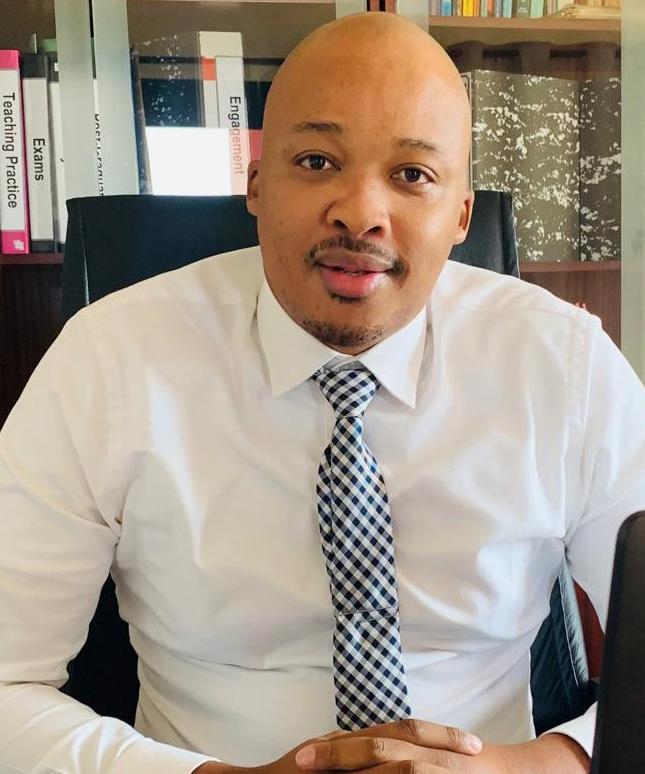
planned target.”
Kashe said FID was commended for an accurate graduation list during the autumn graduation.
“During the Autumn Graduation, the faculty received a commendation for the accuracy of its graduation list, with no audit findings reported by external auditors,” said Kashe.
“The graduation list, submitted and approved by SENEX (Senate Executive Committee), achieved a flawless 100% accuracy rate. The audit assessed the completeness, accuracy, and validity of the graduation lists used for approval.”
He said FID is laying the ground for the 2025 academic year.
“The faculty office was engaged in business acceptance testing in preparation for the 2025 registration period, to eliminate hiccups. This process tested the correctness of the academic structure,
fee structure and other services associated with registration,” said Kashe.
“We also urge our students to engage us on a continuous basis on academic administration matters, the faculty office is situated in Room 2.400 Administration Building in District 6.”
The faculty office is central to all academic administration within FID, overseeing the entire student lifecycle from application and registration to assessments and graduation. It also supports the faculty board and executive committee, managing administrative tasks such as preparing agendas, distributing them, and producing minutes for committee meetings.
By Philani Nombembe
Proud Faculty of Informatics and Design alumna celebrated author and award-winning journalist Caryn Dolley continues to fly the institution’s flag.
Dolley, who graduated from the Cape Peninsula University of Technology (CPUT) with cum laude in 2006, launched her fourth book, Man Alone: Mandela’s top cop – exposing South Africa’s ceaseless sabotage, which was published, last month. The Daily Maverick journalist spoke to FID Pulse about her illustrious journey.
“I’m a journalist and author at Daily Maverick and contribute to its online, print and video platforms,” said Dolley.
She has worked as a researcher at the non-profit organisation Open Secrets, and the amaBhungane Centre for Investigative Journalism. She served as the deputy news editor and an investigative reporter at News24. Her reporting experience also includes the Sunday Times, the Cape Times, and Weekend Argus.
“My focus areas include exposing how corruption and collusion within the state can lead to crimes, including murders, at street level. I also focus extensively on how South Africa fits into the global organised crime arena, and how this country is entrenched in transnational narcotrafficking,” she said.
“Ensuring sources and contacts are not exposed to danger through my work is key and can be challenging.



“Aside from conducting research and investigations that lead to producing in-depth news content, I also look at different ways to deliver information. Daily Maverick has a small yet potent video production team. I create scripts based on issues I’m reporting on and from that, the amazing team films me and creates video analysis and explainers.”
For nearly two decades, Dolley has reported on organised crime in South Africa, uncovering its links to global criminal networks, gang infiltration in private security, and the entanglement of politics, rogue intelligence, and state corruption.
“I’ve used years of research into politically-saturated organised crime – an area in which threats to journalists are not uncommon - to write books to share information the public deserves to know, but which is not put to them via the State. I have been threatened with being shot before,” she said.
The other books that Dolley has written are To The Wolves: How Traitor Cops Crafted South Africa’s Underworld, Clash Of The Cartels: Unmasking The Global Drug Kingpins Stalking South Africa And The Enforcers: Inside Cape Town’s Deadly Nightclub.
“Through my work as a journalist, I cover topics ranging from South Africa’s biggest-ever gun-smuggling investigation to the country’s criminal underworld and links to State police as well as politics.


I’ve used more than a decade of research into those noxious arenas to write books,” said Dolley.
She said a career highlight is seeing whistleblowers vindicated when their exposed truths are finally confirmed.
“My achievements include pursuing various themes and issues over several years and being able to broaden perspectives, especially when it comes to lawbreaking,” she said.
“It’s an achievement, through years of work, to be able to dismantle stereotypical ideas about crime, especially gangsterism, and create understanding about it. If we understand something, we’re more likely to be able to deal with – or tackle –it appropriately.”
By Philani Nombembe
First-year students can teach you a lot as a lecturer.
They are open and honest – which provides a unique window into their thoughts and experiences. This year, I have learned so much about their everyday language and how their generation constantly creates new words and adopts others from different cultures.
I have already picked up more than a dozen new terms. I often ask in frustration: ‘Why didn’t you complete my assignment when you had an entire month to do it?’ or ‘Why are you eating in my class?’
The response is always the same: “Uxolo tishala, ndiyagowa.” This loosely translates to: “My apologies, teacher, I am going.”
It doesn’t quite make sense, does it? The verb ‘to go’ has been adapted into the isiXhosa sentence, but its meaning has changed. In this context, it means distress.
First-year students rarely sit still or stay quiet in class. I have early morning sessions, and my sharp ears often catch snippets of fresh gossip. The conversation usually begins with, “Hey tshomi, ufandawuthile,” which means, “Hey friend, you found out.” Once again, the phrase ‘found out’ has been adapted into the isiXhosa sentence.

While it may seem straightforward, the context is crucial. The phrase is often used in conversations about relationships, where one partner has “found out” that the other is being unfaithful.
There are several other terms that this cohort uses. In preparation for this article, FID Pulse randomly asked students on campus about new English words that have been ‘Xhosalised’. They were generous, not only with the words but also with their detailed explanations.
They include terms like ‘ukugosta’ (ghosting), which refers to a situation where one person suddenly cuts off all communication with another. This can happen in both friendships and romantic relationships.
“We can gauge someone’s age based on their vocabulary,” one student said. “These words are used by ama2000 (Generation Z). It feels strange when someone older uses them.”
As isiXhosa grows, there is a good chance that these words could make it into the isiXhosa-English dictionaries.
In 2014, a school dictionary published by the Oxford University Press Southern Africa listed ikhondom as the new word for condom. The dictionary went
on to list new word additions such as idemokhrasi (democracy); inyukliya (nuclear); igranti (government social grant); iakhawunti (account); iavareji (average); ihelikopta (helicopter); iwindskrini (windscreen); igravithi (gravity) and ikharityhulam (curriculum).
The Spotlight Newsroom, which publishes the FID Pulse newsletter, launched the Spotlight Podcast last month. The podcast promotes the use of isiXhosa and Afrikaans — essential languages in the journalism industry — through engaging talk shows, debates, and news bulletins.
Sindiswa Papa, the acting language and transformation coordinator in the Faculty of Informatics and Design, emphasised that exploring language in contemporary contexts is crucial for pedagogy.
“Understanding how language evolves and adapts among our students is essential for effective teaching,” she said.
“It allows us to connect with their experiences and incorporate relevant vocabulary into our curriculum, fostering a more engaging and inclusive learning environment.”

By Zolani Matolengwe
The human trafficking scourge remains a serious issue in South Africa. According to the U.S. Department of State’s 2024 Trafficking in Persons Report on South Africa, traffickers exploit both local and foreign victims. Disturbingly, the report highlights that traffickers often recruit victims from neighbouring countries and rural areas within South Africa.
These victims are then sexually exploited in urban centres like Johannesburg, Cape Town, Durban, and Bloemfontein. “Traffickers force both adults and children, particularly those from socioeconomically disadvantaged communities and rural areas as well as migrants, into begging, domestic service, mining, food services, construction, criminal activities, agriculture, and the fishing sector. Traffickers may exploit South Africans in forced labour on vineyards and fruit and vegetable farms across the country,” the report reads.
But there is hope. Faculty assistant Anita America, and her classmates, partnered with the non-profit organisation A21 South Africa to fight the crime. The A21 campaign is a global non-profit organisation tackling human trafficking in all its forms.
Their efforts focus on sexual exploitation, forced labour, bonded labour, involuntary domestic servitude, and the recruitment of child soldiers.
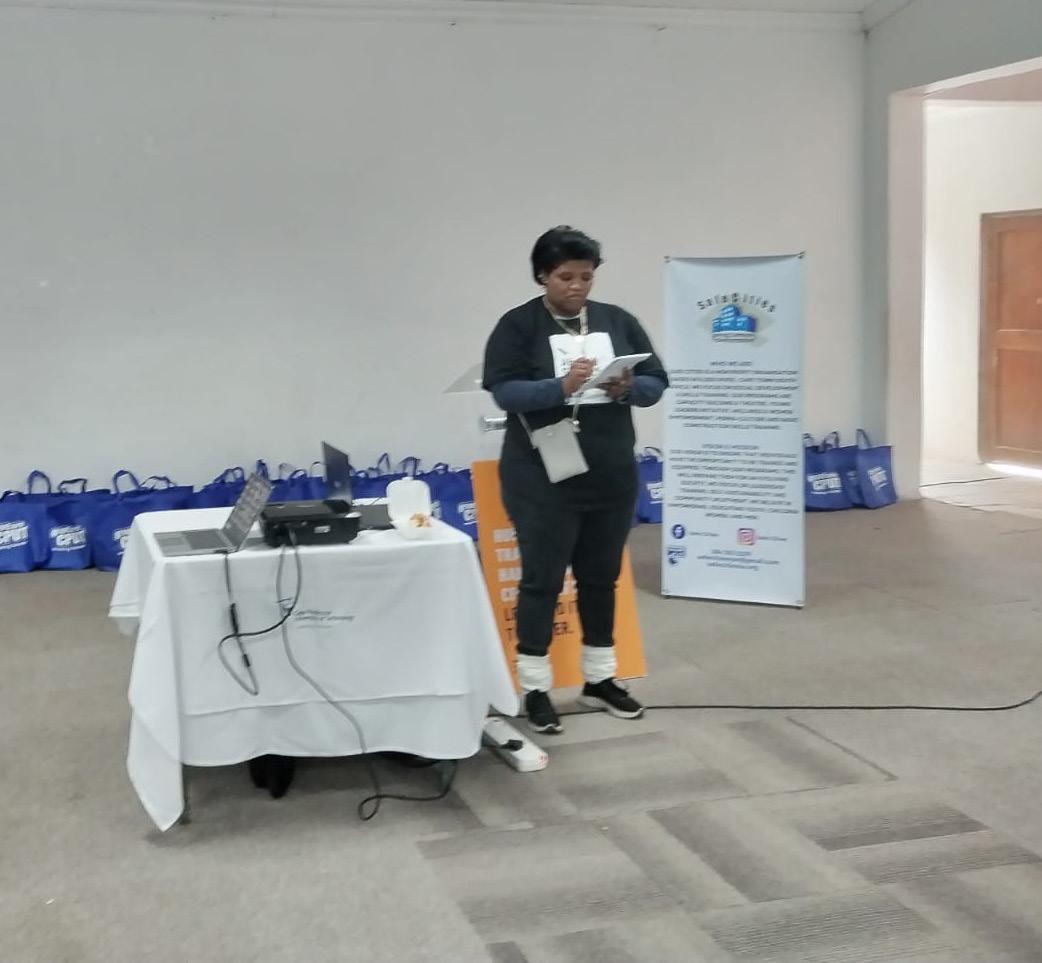
As part of their advanced diploma in Business and Information Administration assignment, the group educated children aged 12 and older in Elsies River, Cape Town, about the dangers of human trafficking on September 20. This event was organized in collaboration with A21 and Safe Cities.
The A21 campaign reports that human trafficking generates approximately $236 billion annually, with an estimated 49.6 million people currently living in modern slavery.
“We aim to empower and engage our youth and create a world where human trafficking is eradicated through awareness, intervention and aftercare,” said America.
“We extend our heartfelt thanks to all our stakeholders, including the Media and Communication Department, for their generous donations, which enhanced the gift bags presented to the children. Thanks to our successful fundraising efforts, we raised R500 for A21 and R1000 for Safe Cities.”
Reagen Allen, the deputy speaker of the Western Cape legislature, was the guest speaker at the event.
“In our provincial parliament, we are aware that intervention and aftercare is vital, we have set up a task team to deal with human trafficking, extortion and kidnapping. We cannot allow perpetrators to get away with extortion and human
trafficking,” said Allen.
“The awareness programme that took place today between A21 and Safe Cities is important, I want to commend the organisation for coming to Elsies River. Between April and June, there were 223 kidnapping cases reported in the province alone. This programme will go a long way knowing that the end goal is to keep children safe and off the streets.”
FID Pulse journalists guided the children as they wrote heartfelt messages for victims of human trafficking. The journalists ensured that the messages were impactful, grammatically correct, appropriately toned, and sensitive to the subject matter.
By Philani Nombembe

At the Cape Peninsula University of Technology (CPUT), we are committed to positioning ourselves as a truly African university, where diverse cultures, perspectives, and ideas converge to shape the future of our continent.
This vision is most clearly reflected within the Faculty of Informatics and Design, where students from across Africa bring their unique experiences, aspirations, and a deep commitment to contribute to the development of both their home countries and the broader continent.
Our African students embody the very essence of education with a purpose. They arrive at CPUT not just to further their own futures but with a firm intention to make meaningful impacts in their communities and on the African continent. Their journeys are varied, yet they share a common goal: to acquire the skills and knowledge necessary to drive innovation and change in Africa.
“As Dean, I am immensely proud of the diversity within our faculty. The diversity of thought, culture, and experience within the Faculty of Informatics and Design makes our academic community vibrant and dynamic,” says Professor Tembisa Ngqondi. “The presence of students from across Africa enhances the learning experience for all, fostering a deeper understanding of the
unique challenges and opportunities facing our continent.”
“CPUT is giving me the technical skills I need to bring innovation to agriculture in Nigeria. I am excited to apply what I’ve learned here to help improve food security when I return,” he shares.
This blend of personal and professional aspirations enriches the academic environment at CPUT, creating a powerful exchange of ideas across borders. Students from diverse African nations not only learn from each other but also challenge one another to think critically about how they can collectively contribute to solving some of the continent’s most pressing challenges.
Ngqondi believes that the role of CPUT extends far beyond education.
“We are committed to providing an environment that nurtures the talents of our African students and equips them with the tools to realise their dreams. CPUT’s role goes beyond education — we aim to empower our students to become agents of change and innovation across the continent,” said Ngqondi. The presence of African students in the Faculty of Informatics and Design is a testament to CPUT’s commitment to fostering a truly pan-African academic community. As these students navigate the challenges of
studying far from home — adapting to new academic standards, cultural differences, and new environments — they also enrich our faculty with their cultural richness, creating a more dynamic and inclusive learning space.
Looking to the future, Ngqondi is confident in the lasting impact these students will have on Africa’s growth and transformation.
“As Dean, I am confident that the students we are nurturing today will be at the forefront of Africa’s development in design, technology, and innovation. Their journeys at CPUT are just the beginning of what will be impactful careers, shaping the future of Africa for generations to come.”
By Philani Nombembe
Senior lecturer in the Media Department, Dr Blessing Makwambeni, is amongst the editors of a groundbreaking new book, Organisational Communication in Africa: Navigating a Digitalising World.
The book brings together empirical work that examines how digitalisation is impacting on and re-configuring organisational communication in different countries across the African continent. It provides new insights, theories and practical strategies for engaging with organisational communication from a Global South perspective.
Makwambeni edited the book alongside Dr Sam Usadolo of Durban University of Technology and Dr Queen Usadolo of North West University and said the project arose from everyday conversations between the trio.
“Sam, like me, is a communication scientist while Queen specialises in organisational behaviour. We wanted a book for our modules that borrowed from both fields to examine contemporary issues in organisational communication from a Global South perspective.
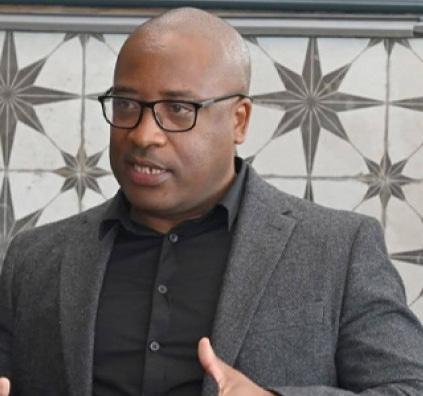
“Luckily, Palgrave Macmillan took an interest in our project and gave us two contracts. So, this is the first of two books we are publishing. The second one that focuses on the intersection of organisational behaviour and organisational communication and technology is coming out in February next year.”
Makwambeni also co-authored one of the chapters in the book, titled Appropriation of Artificial Intelligence in Organisational Communication: A Scoping Review.
His co-author is Dr Patricia Makwambeni from the University of Cape Town.
He hopes it will provide guidelines on AI appropriation in organisations in the Global South and beyond.
The release of the book has left the academic “even more hungry to quench my insatiable appetite for publishing”.
“My publication count is now close to 40 and I keep dreaming for more and have become even more impatient. It is kind of surreal.
I hope this book will make a small impact by contributing towards the decolonisation of communication
and organisational communication in particular. Oftentimes, I hear fellow academics saying there are no African textbooks on organisational communication. Now there will be no excuse.”
The book’s release caps a stellar year for Makwambeni, who has co-published two journal articles and six book chapters in 2024, with two more articles expected by year-end, “which will take my publication count beyond 10 for the first time in my career”. This will result in more than six research units for the academic.
By Philani Nombembe
Two academics from the Media and Communication Department recently presented their work at the Annual South African Communications Association (SACOMM) Conference, hosted by the Departments of Journalism and Visual Arts at Stellenbosch University.
Lecturer Dr Adelina Mbinjama presented on her National Research Foundation (NRF) Thuthuka grant project, which ran from 2021 to 2023. Her presentation was titled: An Investigation of Cyber-Ethics among Digital Media Marketers in a changing Media Landscape: A Case Study on Black-owned SMEs during the COVID-19 pandemic.
Upasna Maharaj, nGAP Lecturer in Film Production, presented her research article: Decolonising Film Education in South Africa: A Review of Approaches and Challenges, as part of the New Pedagogies panel at the Conference.
Mbinjama, who is the Chair of the Media Department Research Committee at CPUT, where she chairs the master’s proposal defences, also serves as a mentor on the Sisonke 3.0 Mentorship Programme, where more experienced supervisors give support and advice to CPUT employees who are new to postgraduate supervision.
Through a qualitative approach, her study investigated the use and practices of cyber-ethics among digital media marketers and employers in 50%-100% black-owned Small and Midsize Enterprises (SMEs). The study revealed the ethical and moral behaviour-related challenges that black businesses encountered during the period of COVID-19. Limited technological and legal infrastructures proved challenging for SMEs considering their loss of revenue during the pandemic.
“Due to my work on cyber-ethics for Thuthuka, I noted certain topics that

emerged from my study but need to be expanded on, so I have a call for book chapters with Emerald Publishers, which I am working on with two other editors with research interests in the digital world, Dr Janelle Vermaak-Griessel (Nelson Mandela University) and Prof Bianca Wright (Coventry University in the UK).
She is also part of the University Capacity Development Programme (UCDP) CPUT Cohort as a supervisor to master’s and doctoral students.
Mbinjama recently attended the Humanities International Spring School at North West University, where postgraduate supervisors and students are capacitated to do research.
“The exposure to research is important to me as an emerging scholar and postgraduate supervisor. Through conference presentations and attendances, I believe that I will be able to enrich my knowledge and speciality in cyber-ethics and digital media. I also feel that my research activities will expand from an interdisciplinary approach to a more multidisciplinary and transdisciplinary approach.
Maharaj joined CPUT in November 2023. “My presentation explored the ‘decolonisation’ of film education in South Africa, attempting to address questions of how to make film education more relevant, accessible, and context-specific in the post-colonial university. Decolonisation in film education involves interrogating and decentring Western and dominant theories, methodologies, and assumptions. It requires experimenting with curriculum design, teaching delivery, and shifting power relations within the classroom, where new approaches are underpinned by a desire to make education more rele-
vant and accessible to students.
“The study synthesises existing literature and insights from South African film educators to investigate how ‘decolonisation’ translates to tangible efforts and specific actions that assist in equipping students with the skills and knowledge to succeed in our current globalised/glocalised mediascapes. Additionally, the research explores barriers and challenges faced by academics and institutions attempting to engage meaningfully in context-sensitive pedagogy.”
She will be presenting an updated version of this research at the CPUT Research Festival on 31 October 2024.
Maharaj serves as an editorial intern for Intellect’s Journal of African Cinemas and freelances as a story consultant in the film industry.
She holds an MA in Media Theory and Practice from the University of Cape Town and is currently pursuing a PhD in Film Studies.
The exposure to research is important
By Philani Nombembe
Seven PhD graduates from the Faculty of Informatics and Design are set to receive their degrees during the summer graduation ceremonies next month.
Tragically, one of them will be honoured posthumously. Patrick Mwansa, 44, passed away after completing his thesis as part of his PhD in Informatics. His research is entitled “Trust System Framework for Integrity Controls in Electoral Vote Counting and Validation.”
His supervisor Dr Boniface Kabaso said Mwansa’s research “holds profound significance for improving the integrity and trustworthiness of electoral processes globally”.
“Patrick Mwansa tackled critical challenges in traditional and electronic voting systems, including mistrust, security flaws, and lack of transparency, which lead to losses, miscounts, fraud, and manipulation,” said Kabaso.
“To address these issues, he developed a blockchain-based vote counting and validation artefact that employed symmetric cryptography and edge computing to

ensure transparent, secure, and trustworthy electoral processes.
By applying the Byzantine General Problem and Byzantine Binary Agreement protocols within consensus algorithms, his solution enhanced security and trust in decentralized voting environments.”
Mwansa published four research papers based on his PhD work. “These publications demonstrate the depth and breadth of his research and highlight his commitment to advancing knowledge in this critical area,” said Kabaso.
“The publications not only reflect the academic rigour of Patrick’s research but also serve as valuable resources for future scholars and practitioners aiming to enhance election systems. His contributions provide a foundation for ongoing advancements in secure and trustworthy electoral processes.”
Mwansa was the head of the ICT Department in the School of Business at Kwame Nkrumah University, Zambia. He was on study leave while pursuing his studies at Cape Peninsula University of Technology.
“Patrick is survived by two beautiful children, who were a source of pride and joy in his life. He is remembered as a devoted father, a compassionate educator, and an inspiring leader whose legacy continues to influence his students, colleagues, and the broader academic community,” said Kabaso.
By Jim Mohlala
Late nights, training new staff, and teamwork have earned faculty assistant Isaac Paul special recognition from Vice-Chancellor Professor Chris Nhlapho.
Paul was awarded a Service Excellence for Support Staff Award at the inaugural Vice-Chancellor’s Excellence Awards, on Monday, 25 November. He said he was humbled by the recognition.
“I am truly honoured to have received the VC’s Excellence Award for my dedication and commitment to going the extra mile. This recognition means so much to me, as it not only reflects my efforts but also highlights the incredible support and collaboration within the Cape Peninsula University of Technology community,” said Paul.
“It serves as a reminder of the importance of hard work, passion, and perseverance in everything we do. I believe that excellence is not just about the results we achieve, but about the continuous pursuit of growth, learning and making meaningful impact.” He said the award encouraged him to work harder.
“This award motivates me even more to the success of our faculty and the greater goals we share. I am grateful for this recognition and for the opportunity to be a part of such an inspiring and dedicated environment. To God be the glory,” said Paul.

By Philani Nombembe
The Media and Communication Department’s postgraduate qualifications are a cut above the rest.
This was affirmed by the Vice-Chancellor’s Award, which was presented to the department, at the inaugural Vice-Chancellor’s Excellence Awards, on Monday, 25 November. Professor Nirvana Bechan the head of the Media and Communication Department described the award as a stamp of approval.
“In August, we underwent a programme review, requiring attendance and submission of subject guides and assessments. Our department conducted two simultaneous reviews: one for undergraduate programmes and another for postgraduate programmes, each with its own set of documents,” said Bechan.
“At yesterday’s Vice-Chancellor’s Excellence Awards, the Department of Media and Communication was honoured with an award, sharing the recognition alongside two other departments.”
“The three departments achieved the highest scores in the postgraduate programme review, meaning our master’s degrees and postgraduate diploma programmes are of excellent quali-y. We are offering a good service. So we were honoured to receive that award...in front

of the whole university.
“The postgraduate studies in our department is led by Professor Nic Theo, Dr Blessing Makwambeni and Dr Adelina Mbinjama and me.”
Bechan said the university’s quality directorate also awarded the department’s Blue Flag status this year based on the previous quality review. That means that all items requiring improvement from the previous review were successfully closed out.
By Ilse Fredericks
An Advanced Diploma in Interior Design student was recently announced as one of the student winners in the prestigious SIT Furniture Design Awards.
Kayla Obbes won the Furniture Design - Armchair category for her design, titled Grounded.
Her design is “a statement seating piece embracing an organic, harmonious, down to earth and soothing energy. Conceptually derived from a brass singing bowl and the experience thereof. Embracing shape; Held space; Centered and Grounded”.
Obbes said that during her third year of study at BHC School of Design last year, the students were tasked to design a furniture prototype.
“Then, when I started my Advanced Diploma at CPUT, my lecturer, Colleen Cocotos, looked through my work, and she saw potential in this design and encouraged me to enter the SIT furniture design award. Thereafter, I reworked some of my design and uploaded it.
“When I got the email from the awards to congratulate me as a winner, I was quite taken aback. I was not expecting it at all.”

Kayla expressed her gratitude for the immense support and guidance from her lecturers at BHC during the design, development and manufacturing process and to Cocotos for her support and encouragement.
Cocotos said, “I strive to ensure that our students are recognised for their hard work, both locally and internationally. I present these opportunities, and the students are the ones who fulfil the necessary outcomes. I appreciate Kayla’s proactive commitment to her work.”

I was not expecting it at all
and technology. The project takes a more human-centred approach by focusing on how these individuals engage with technology in their daily lives,” said Francke.
“With emerging technologies playing a crucial role in reshaping the global labour landscape, this project seeks to understand how these changes are being experienced on the ground.
“The findings from this collaboration are expected to contribute significantly to global discussions on the future of work, technology, and equity.”
By Jim Mohlala
The IT Department is representing the Faculty of Informatics and Design on the global stage.
It is taking part in a project dubbed the ‘Work Futures in a Global, Mobile & Connected World: Imaginaries & Lived Experiences in India, Senegal, South Africa & Sweden’. The department’s Dr. Errol Francke said the collaboration was initiated through the South Africa-Sweden University Forum in 2023, unites researchers from the Cape Peninsula University of Technology and Malmö University in Sweden. Francke said the project, which explores technology, labour, and global mobility, promises fresh insights into the future of work in the digital age.
“This research gives us a unique opportunity to understand how workers around the world, particularly the youth, envision their futures in a world where technology is transforming every aspect of life,” said Francke.
“We are especially interested in how issues like race, class, and gender intersect with technology to shape the opportunities these workers have.” Francke said the research centres on young, mobile workers who are unemployed or underemployed in the project’s focus countries.
“These workers serve as the primary subjects through which the research examines the broader global context of labour
and academically”.
The FYE initiative was launched in 2023. The latest session, where Samantha Hanslo from Student Counselling engaged the students on the importance of mental health care, was held in October –just in time for the exams.
ICT lecturer Meagan Hamman said the sessions were valuable.
“It was very informative and integral to the students at this point,” said Hamman.
“Most of the students who attended were my students, as I sent a message via WhatsApp reps, which seems to be a route we’ll need to explore more next year since many students don’t read their announcements or emails.
“There is a portal that acts like a subject on Blackboard. So once we’ve had sessions and the speakers have videos, presentations, or books, we load them onto the portal for students to access,”
Hamman said there were more FYE programmes in the pipeline.
“We hosted a session with the academic advisor closer to the June exams, and we hope to collaborate again next year. We’ve also hosted the librarian, and in 2025, we’ve got plans for a bigger collaboration where the faculty librarian will facilitate. More events with Fundani and Student Counselling are also in the works,” said Hamman.
“We’re currently using the FYE portal on Blackboard as well as within certain subjects in the first year, but perhaps we can use other portals next year, like a WhatsApp channel, to alert students better.”
By Jim Mohlala
The first year at university is often a challenging time for many students. However, the IT department has found an innovative way to ease this transition and enhance the student experience. This year, the department ran five sessions, through the First-Year Experience (FYE) initiative, to support the students “mentally
As the year draws to a close, the FYE team plans to gather feedback through surveys and analytics, which will help shape the programme for the future.
“Before the end of the academic year, we’d like to do a feedback survey for the students, and hopefully, we can glean from that and our analyses how to improve going forward,” said Hamman.
By Jim Mohlala
For Ameer Toefy, a final-year jewellery design student, passion goes beyond creativity.
It is rooted in sacrifice and unwavering dedication to his craft.
From cycling nearly every day from Athlone to the District Six campus to investing his NSFAS funds in perfecting his design skills, his journey goes beyond earning a diploma. Now in his final year, Toefy is also crafting rings for his wedding next year.


It’s not just about creating, it’s about constantly learning and perfecting,” he said. “This is what I love. I’ve put my life into it.” Toefy is also preparing for his upcoming wedding.
“I live in Athlone, and I have to travel home everyday, but sometimes I cycle to campus because I don’t have a car. I’ve cycled through Woodstock, Observatory, and other areas, even after almost being robbed a few times,” he said.
“I just get on my bike, come to campus,
and get to work. Nobody needs to know, it’s just what I do.”
Toefy has spent his meagre savings on materials to improve his craft.
“I couldn’t afford taxis or other transport. Every cent I had went into buying metal and tools. Silver is expensive, a single piece costs hundreds, but it was all worth it because this is my passion,” he said.
“Every piece takes time, precision, and money. From 9am to 5pm everyday, sometimes later, I’m on campus working.
“I’m getting married in April, and I’ve dedicated my studies to this moment. I’ll be making our wedding rings myself,” he said. “That’s why I’ve been putting so much into perfecting my skills. Every late night, every piece I’ve worked on has led to this.
“I already have the designs ready. It feels amazing to know that the rings we’ll wear will be handmade by me, something I’ve poured years of effort and passion into.”
By Jim Mohlala
IT students recently showcased their talents at the prestigious Afrihack Connect hackathon.
Third-year students Palmira Senama and Athini Nocanda demonstrated innovation and problem-solving skills in September. The annual event, organised by the Empiras Global Academy, brings together students from various institutions to tackle real-world challenges through innovative technology solutions.
Senama said the experience helped her step out of her comfort zone.
“For someone shy to speak in front of an audience, I challenged myself. This competition helped me fight my stage fright and gain confidence and realise that it’s not even that deep. It’s a mini anxiety you get, but right after you’ve spoken
everything falls through,” said Senama. “There were certain things I didn’t know existed or how they worked, it was like discovering a new world you didn’t know existed.”
Nocanda’s team secured an impressive third place by developing a solution to assist disadvantaged students in applying for university admissions.
“Getting third place was a surprise to me because we got everything together at the last minute. I am thankful to my team for not giving up,” said Nocanda.
“Most people would think that third place is nothing but it felt good knowing where we came from and what stage we were on, and we are grateful for it.”
The Faculty of Informatics and Design (FID) celebrates excellence and dedication.
In October, FID recognised outstanding students at an awards ceremony held on
By Owentando Zantsi
would never have been possible without your constant endeavours,” she said. “When journeying in life, remember all those who cared for you, encouraged you, aided you, and stood by you.”
By Jim

More than 100 students were honoured at the event. Awards were presented across a range of categories, including the Resilience, Determination, and Achiever Award; Entrepreneurial and Innovation Award; Academic Achievement Award; Innovation and Community Engagement Award; and the Design Innovation & FID






The event showcased a range of stunning images

















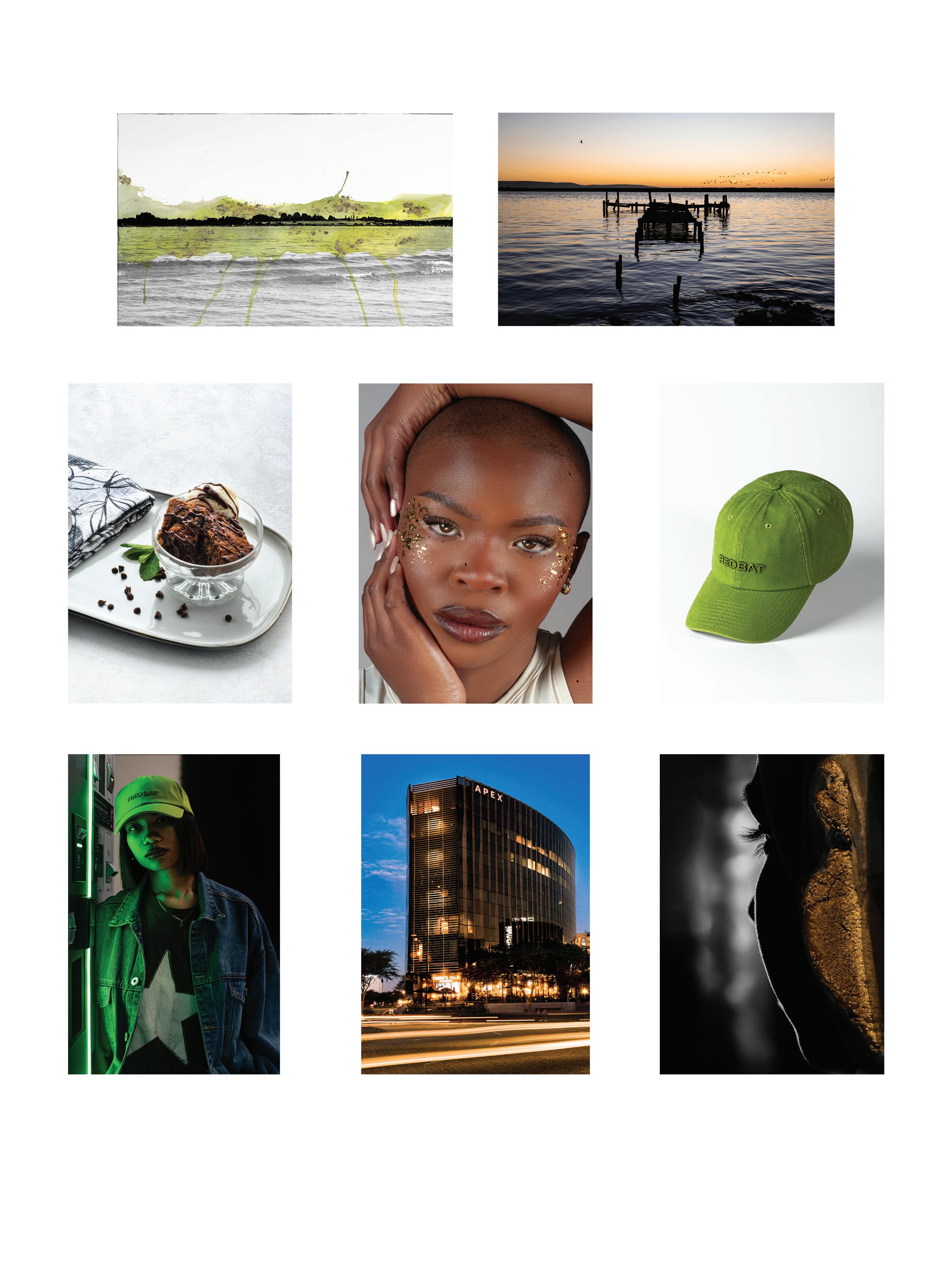




By Jim Mohlala
The shared history of South Africa and St Helena Island is underexplored in formal research, despite a rich oral history tradition and a large St Helenian diaspora in South Africa.books in some libraries. Film Production lecturer, Damian Sean Samuels, has pulled these stories from obscurity through his nostalgic film. Cape-Helena was screened at the Labia Theatre, Cape Town, in October, and was selected for the Encounters International Festival in June where the screening was sold out.
“It is very difficult and expensive to produce a film in South Africa,” said Samuels.
“Cape-Helena is a very personal film, but it is also intersubjective in the sense that my connection to the Island of St. Helena, as a descendant, is representative of hundreds-of-thousands other South Africans who share my heritage. It took years of intensive research, trying to source funding, writing, planning, producing and eventually releasing the film.
“All in all, it took me seven years, but the journey was incredible because I managed to go to Saint Helena twice and reconnected with
By Jim Mohlala
Cinematography lecturer Johann Abrahams has won the prestigious South African Film and Television Award. Abrahams received an award for Best Educational Programme for the documentary series 'Khoekhoe Saga' in October. He directed the documentary telling the
my family after two generations of separation.”
Samuels reaped the dividends of hard work this year. Two of his film scripts were selected for the prestigious Writers Guild of South African Muse Awards 2024.
“The first is a script for my doctoral documentary film, Cape-Helena, that has made it to the Semi-finalist stage,” said Samuels. “The second is a short fiction script, Limina, which won the award for best 2024 Short Fiction Screenplay.”
But film production lecturer Damian Samuels has revived these forgotten stories through a nostalgic film. He said the history is underexplored in formal research, despite a rich oral history tradition and a large St Helenian diaspora in South Africa. Cape-Helena was screened at the Labia Theatre, Cape Town, in October.
“It is very difficult and expensive to produce a film in South Africa,” said Samuels.
“Cape-Helena is a very personal film, but it is intersubjective. It took years of intensive research, trying to source funding and writing, planning and eventually releasing the film.
“All in all, it took me seven years, but the journey was incredible because I managed to go to Saint Helena and meet with my family after two generations of separation.”
Samuels reaped the dividends of hard work this year. Two of his film scripts were selected for the prestigious Writers Guild of South African Muse Awards 2024.
“The first is a script for my doctoral documentary film, Cape-Helena, that has made it to the Semi-finalist stage,” said Samuels. “The second is a short fiction script, Limina, that has made it to the finalists list.”
stories of South Africa's herders, which premiered on SABC 2 last year. It showcases his skill in blending storytelling with educational content.
Abrahams said the award recognised the history of the aboriginal people of South Africa.
“I am extremely grateful for this recognition because what it means is that for the first time, there is an acknowledgement of the history of the Khoi and the San,” said Abrahams.
“Our collective history is so important for our youth. This places the focus on that history.”



By Jim Mohlala
If fashion is a language, fashion design students’ garments displayed at the Castle of Good Hope recently spoke volumes. They offered a glimpse into the creative minds of fashion design students.
The fashion show held at the historic venue on October 26 was a culmination of the students’ years of dedication and creativity. Third-year fashion design student Vuyokazi Msotyana’s designs were on display. Msotyana said her designs were fueled by passion.
“I’ve always loved creating,” she said.
“It all started in high school, where I studied design and visual arts at Chris Hani Arts and Culture High School. After matriculating, I pursued Clothing Production at Northlink College, and eventually, I found my way to Cape Peninsula University of Technology to focus on fashion design.”
She described preparing her collection as both a challenging and enriching experience.
“It’s a process that requires strong time management skills. From conceptualising designs and creating concept boards to drafting patterns and selecting the perfect fabrics, every step is critical,” said Msotyana.
“You can easily find yourself changing designs or struggling to source the right materials. It’s all about persistence and attention to detail.”
Advanced diploma student Jamie Heathcock also showcased her work. She shared insights into the challenges and

triumphs of her creative journey.
“It was a bit stressful, not going to lie,” said Hearthcock.
“But knowing how much work I put into it made it all worth it. We’ve been working on these collections all year, from design-
ing and developing concepts in the first half to sewing, which probably took the longest.
“Even though we didn’t get to practice on the runway beforehand and there was some confusion, I’m so happy with how it turned out.”
It’s a process that requires strong time management skills



By Jim Mohlala
Studying in another country presents a host of challenges, with culture shock often being one of the most significant hurdles.
However, the Cape Peninsula University of Technology (CPUT) has been a beacon of opportunity for Ted Japhet Nzamba Mabika from Gabon. The third-year Communication Networks student describes his time at CPUT as an enriching experience.
“Studying at CPUT has been an enriching experience. Initially, I faced some cultural differences, but over time, I’ve found CPUT to be a welcoming environment,” he said.
“The diversity within the university means that there is a broad understanding of various African cultures.”
However, he has faced challenges adapting to a new academic system, language
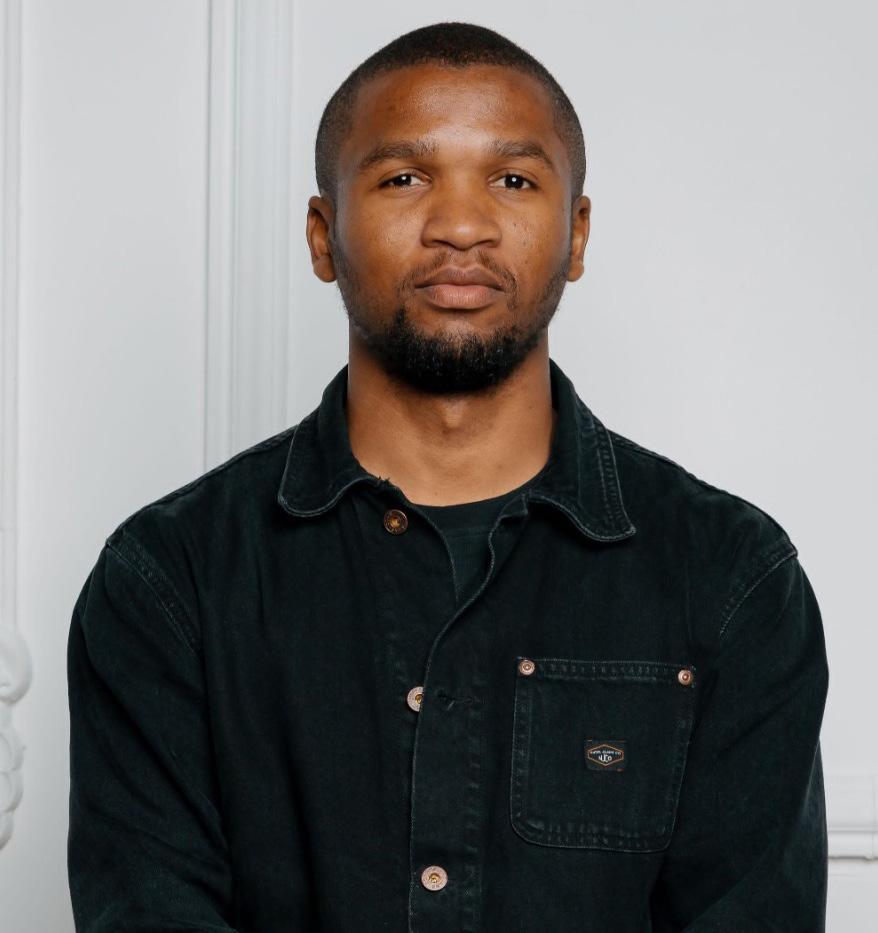
barriers, and administrative tasks like visa renewals.
“CPUT can better support us by offering more tailored orientation programmes and expanding the role of international student advisors to provide clearer guidance,” said Mabika.
“My goal is to complete my qualification with a focus on contributing to Africa's technological development. Through the skills and knowledge I’m acquiring, I can play a part in improving communication networks and infrastructure in Gabon and across Africa.”
He believes CPUT can support his goals by providing internships and research opportunities that address African challenges such as sustainability, technology access, and healthcare.
By Jim Mohlala
Reports of mistreatment toward African students abroad are common, but for DRC-born Kevin Botoko Bosenga, Cape Peninsula University of Technology (CPUT) feels like home.
The IT student grew up in South Africa, so he did not experience cultural shock. “I grew up here, I did my primary school and high school, and then university. I grew up a lot around South Africans,” said Bosenga.
However, he said life is different for foreign students compared to local ones. “Those who come from outside have to pay a lot in fees, medical aid, and stuff like that,” he said.
“My goal is to complete my qualification with a focus on contributing to Africa’s technological development.

Programmes
Applied Design
Fashion
Jewellery Design & Manufacture
Visual Communication Design
Product & Industrial Design
Design Post graduate studies
Design Foundations ECP
Dr Monica Di Ruvo
diruvom@cput.ac.za
FID Acting Research Coordinator
Research innovation & partnerships
Research
Architectural Technology and Interior Design
Prof Masilonyane Mokhele (acting)
Architectural Technology
Interior Design
Architectural Technology & Interior Design (ECP)
Urban & Regional Planning
Information Technology & Multimedia
Urban & Regional Planning
Higher Certificate:
Information & Communication
Technology Service
Management
Information & Communication
Technology: Applications Development
Information & Communication Technology: Communication Networks
Information & Communication Technology: Multimedia
Applications
BTech and Advanced Diploma in Information & Communication
Technology
Post Graduate Studies
ICT Academy
Media and Communication
Film & Video
Journalism Photography
Public Relations
Management
MokheleM@cput.ac.za
HOD-ATID@cput.ac.za
MokheleM@cput.ac.za
NcubukeziT@cput.ac.za
bechann@cput.ac.za
